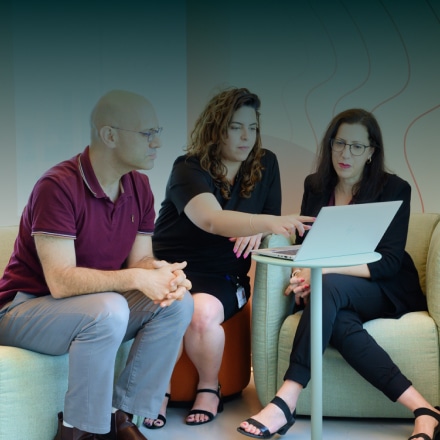The cybersecurity landscape is constantly changing – and the need to stay on top of evolving threats and technologies and the pressure of preventing and mitigating cyberattacks can be exhausting.
As increasing numbers of security professionals experience stress, fatigue, and burnout, it’s important they prioritize their mental health – just as they would prioritize their physical health. According to Tines research of mental health in cybersecurity, 51% of respondents have been prescribed medication by a doctor to alleviate mental health issues, and 49% are currently seeing a therapist.
The New Year is an ideal time to re-focus on improving mental health and well-being through activities and behaviors that alleviate stress and promote better work-life balance.
The New Year is an ideal time to re-focus on improving mental health and well-being through activities and behaviors that alleviate stress and promote better work-life balance.
The growing pressure on security teams
With the increasing complexity of enterprise operations, as well as the shift to a hybrid workplace, the Security Operations Center (SOC) has become a highly stressful environment for cybersecurity professionals. The talent shortage in the field only adds to the pressure.
The complexity of IT systems, coupled with the need to secure a growing attack surface, has made working in the SOC more challenging than ever before. The constant threat of cyberattacks and the pressure to prevent them creates a high-stress environment that can be difficult to navigate.
As the threat landscape continues to evolve, it is important that organizations invest in people and technology needed to keep their SOCs running smoothly and effectively.
What can security leaders do to improve the mental health of their team?
To improve the mental health of their teams, security leaders can take several steps:
-
Give permission and space to prioritize self-care – Leaders can set the tone by modeling self-care and making it a priority in their own lives. They can also create a culture that focuses on well-being and encourages employees to prioritize their physical and mental health.
Leaders can provide employees with resources to support self-care, such as offering flexible work schedules, providing access to mental health resources, and promoting a healthy work-life balance. Additionally, they can create policies and practices that support self-care, such as providing paid time off for mental health days and offering wellness programs and activities.
-
Identify ways in which a change in working culture could be achieved – Set clear and achievable goals and celebrate successes along the way. By recognizing and celebrating even the smallest achievements, individuals will stay motivated and on track to achieve their goals.
Creating a culture that normalizes mental health and implementing dedicated well-being programs will encourage employees to seek help without the fear of judgment or discrimination. It will also help to reduce stress, improve productivity, and create a more positive and healthy work environment.
Leaders can set the tone by modeling self-care and making it a priority in their own lives. They can also create a culture that focuses on well-being and encourages employees to prioritize their physical and mental health.
Recommendations for reducing stress and improving mental health
Here are a few suggestions that security leaders can introduce and encourage team members to implement:
1. Block off time on your calendar
Blocking off time helps you stay organized and focused and can make it easier to manage your workload and prioritize tasks. You can start by blocking an hour on your calendar every day. Don’t let anyone schedule a meeting with you during that time unless it’s for a valid reason.
2. Turn off your email / Teams / WhatsApp notifications
By turning off your notifications, you avoid being interrupted and can focus on your work. If you’re constantly being notified of new emails, it’s difficult to concentrate on a specific task. Also, always checking your email can be overwhelming. Not all emails require an immediate response!
3. Start the day with a workout
A workout improves your mood and increases your energy levels. If you start your day with a workout, you’ll most likely feel more positive and motivated. Exercising improves cognitive function and focus, so working out before going to the office can help you think clearly and get things done more effectively.
4. Drink water
Cliché, right? But when you’re busy working, it’s easy to forget about self-care – and not drink enough water or remember to eat. When you’re dehydrated, you can’t work efficiently, and you may experience fatigue or dizziness.
There are apps that remind you to drink water – they come with helpful tips and information on how much water you should be drinking based on your age, weight, and activity level. Worth a try?
5. Compliment a colleague
By complimenting a colleague, you make them feel good about themselves and their work, which might improve their overall mood and motivation. Compliments have benefits for both the individual and the team – improving morale, building relationships, improving performance, and leading to a more positive and successful work environment.
6. Create clear boundaries about when you do (and don’t) work
When are you available for work? Do you have a flexible working arrangement? Communicate your working hours to your colleagues – so they’ll know when to expect a response from you or avoid scheduling meetings outside of your working hours.
Sticking to your boundaries will help you manage your time and workload more effectively, be more productive and successful, and maintain a healthy work-life balance.
7. Nourish friendships and keep people close
Nourishing friendships is an important aspect of good mental health. Having close friends to talk to and confide with, can make you feel more connected and less alone. Friends can listen, offer advice, and help you work through challenges and difficult emotions.
Spending time with friends is also a fun and enjoyable way to relax and unwind, and can give you a sense of belonging and community – boosting self-esteem and improving your overall mental health. In the New Year, prioritize spending more time with friends and other people that inspire you!
8. Unplug
Screen time has been linked to increased stress, anxiety, and depression. Staying away from screens can help reduce these negative effects and improve your overall mental health and well-being.
Take a break from your social media accounts and see how it affects your mood. You may find that you’re happier and less stressed without being constantly connected. Plus, you may even have more time to focus on the things and people that bring you joy.
Make your New Year’s resolutions stick
To make New Year’s resolutions stick, it’s important to create a game plan that helps translate intention into habit. This could include setting specific targets, tracking progress and celebrating wins, but also seeking support from others.
Be kind to yourself if you can’t always stick to the plan – and get back on track as soon as possible!
Mental health and well-being are key to improving focus, decision-making, and problem-solving abilities, all of which are crucial for effective cybersecurity. By prioritizing self-care, cybersecurity professionals are better prepared to tackle SOC challenges and protect their organizations from cyberattacks.
By prioritizing self-care, cybersecurity professionals are better prepared to tackle SOC challenges and protect their organizations from cyberattacks.
Did you know that working with an advanced Managed Detection & Response (MDR) provider can help alleviate the stress resulting from over-stretched SOC teams? Get in touch to learn more!









